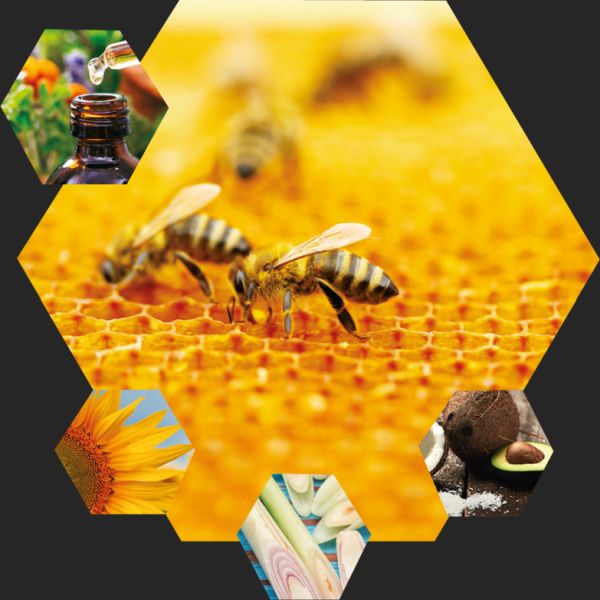How valuable bee propolis is when it comes to our health
Honey bees are best known for making honey, and to a lesser degree, for making beeswax. But honey bees also make another product—bee propolis.
Bee propolis is a sticky, brown substance sometimes known as bee glue. The honey bees gather tree resin, the main ingredient in propolis, from buds and cracks in the bark. The bees add salivary secretions to the resin by chewing on it and add beeswax to the mix. Propolis has a little pollen in it, too. When analyzed, propolis contains about 50% resin, 30% wax and oils, 10% salivary secretions, 5% pollen, and 5% amino acids, vitamins, and minerals.
The interesting thing about propolis, which is also true for honey, is that its composition is always going to vary depending upon the exact collection time, collection location and plant sources.
Propolis is known to have antimicrobial properties, and many scientists are studying the potential uses of propolis as a therapy for certain diseases. Propolis is particularly effective at killing the microorganisms that cause gum disease. It has also been shown to be effective at inhibiting the growth of certain cancers.
1. Helps Combat Cancer
One of my favorite bee propolis benefits is that it appears to possess anti-tumoral and anticancer properties. There are currently over 300 scientific studies and articles focusing on propolis and cancer treatment. Two propolis polyphenols in particular seem to be the most potent anti-tumor agents. They are caffeic acid phenethyl esters from poplar propolis and Artepillin C from Baccharis propolis.
Scientists believe that the ability of propolis to prevent cancer from developing in both animal models and human cell cultures is likely the result of its ability to inhibit DNA synthesis in tumor cells as well as its capability to induce apoptosis (programmed cell death) of tumor cells.
A 2016 study evaluated the effects of propolis extracts from the northern region of Thailand on cancer cell growth. All of the extracts showed high antioxidant activity as well as high phenolic and flavonoid content. Overall, the propolis extracts showed anticancer activities and extended the survival of animal subjects who already had tumors.
This study concludes, “From these findings, it is evident that propolis extracts can be considered as a naturally obtained agent extremely useful in cancer treatment.”
2.Treats Candida Symptoms
Candida or candidiasis is an infection caused by Candida Albicans, a yeast-like fungus. This is the most common type of yeast infection found in the mouth, intestinal tract and vagina, and it may affect skin and other mucous membranes. If the immune system is functioning optimally, this type of yeast infection is rarely serious. However, if the immune system is not functioning properly, the candida infection can migrate to other areas of the body, including the blood and membranes around the heart or brain.
A study published in the journal Phytotherapy Research found that propolis extract inhibited oral candidiasis in 12 patients with denture-related inflammation and candidiasis.Other research published in 2011 in the Journal of Medicinal Food revealed that propolis seems to be the bee product with the highest antifungal activity as demonstrated by its effect on 40 different yeast strains, including Candida Albicans. Other bee products tested included honey, bee pollen and royal jelly.
3.Prevents and Treats Common Cold and Sore Throats
Scientific studies have shown that propolis extracts may naturally prevent as well as shorten the duration of the common cold, which can often include a dreaded sore throat. One study administered an aqueous propolis extract to a group of very young school children for the entire duration of a year’s “cold season.” The exact daily dose is not given, but the children treated with propolis had fewer colds with acute or chronic symptoms. The propolis extract was also tolerated well.
4.Fights Parasites
Giardiasis is a parasitic infection that can occur in the small intestine and is caused by a microscopic parasite called Giardia lamblia. You can contract giardiasis from contact with infected people or by eating contaminated food or drinking water. A clinical trial looked at the effects of propolis extract on 138 giardiasis patients, both adults and children. The researchers found that the propolis extract resulted in a 52 percent cure rate in children and a 60 percent elimination rate in adults.
Bee propolis has been serving honey bees and humans for centuries. While the honeybees use it to keep their hives hole and invader-free, humans use bee propolis both internally and externally for medicinal purposes.
